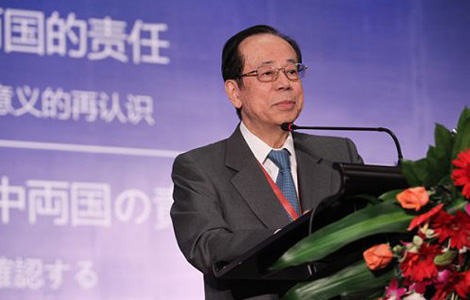Good governance good for growth
Updated: 2013-10-28 07:26
By Alfred Romann in Hong Kong (China Daily)
|
|||||||||||
This is not necessarily linked to low tariffs or costs but rather to ensuring that the costs are fair to everybody and known.
A recent study by eBay in the United States suggested that 94 percent of their SME customers now export to at least five countries. All these businesses are likely to trade with countries that have efficient and predictable logistics chains, adds Ducker.
In a 2010 study, the New Delhi think tank Research and Information System for Developing Countries noted that trade in Asia "is very much contingent upon governance and institutional quality". Countries with better governance enjoy better trade.
And improved governance at the national level has a broader impact. Better national governance leads to better regional governance and this, in turn, leads to more regional trade, noted Prabir De, the author of the study. Improved governance lowers both the risks and costs associated with trade.
On the other hand, ignoring governance weakness can significantly reduce the positive impact of free trade agreements (FTAs), which are proliferating across the region.
All this is not to say that the situation is not improving. The Asia Corporate Governance Association (ACGA), which carries out periodical surveys on the quality of governance across the region, found in a September 2012 survey that there had been systemic changes in corporate governance in the region since the previous survey in 2010.
Seven of the 11 markets that ACGA tracks saw improved scores, but in three of these countries the scores were slightly lower than in 2007, having dropped significantly after the global financial crisis.
According to ACGA, Singapore and Hong Kong have the best corporate governance in the region. Singapore, Thailand, Malaysia, India and the Philippines have improved. Indonesia has slipped and remains at the bottom of the rankings.
Across the region, the political and regulatory environment tends to change quite quickly, depending on the government priorities of the moment, said ACGA.
Only Singapore and Malaysia have improved consistently in this category in the past half decade while other markets have to contend with overly cautious reform or competing policy objectives.
In the end, improving governance can be both difficult and slow, says ADB's Rhee.
Across much of Asia the quality of governance is typically measured against the quality of public services, he said. Governments can choose to create tools for the improvement of governance in public services such as more public feedback, scorecards or technological tools.
"We really believe that Asia needs to improve governance but a tailored approach is necessary," says Rhee.
For many in Asian countries, says Rhee, "governance reform is an important (part) of the agenda".
Progress is visible in places. There have been very public anti-corruption campaigns in China and the Philippines, where the new president announced a governance reform and has been successful at attracting foreign capital and trade as a result. Indonesia has enshrined governance reform as part of its plan to return to fast growth.
"But saying it is much less difficult than doing it. Implementation and enforcement are key," adds Rhee. "The road is very challenging but we believe it is an area where the payoff can be very large."
Additional reporting by Ben Yue in Bali
Related Stories
No policy tightening by PBOC: HSBC economists 2013-10-25 17:18
72-hour visa-free policy in China 2013-10-23 18:38
Draft requires environmental reviews of govt policy 2013-10-22 09:08
Central bank says housing credit policy unchanged 2013-10-17 10:06
Policies to boost FTZ capital market 2013-09-30 11:29
Today's Top News
Storm wrecks havoc in S Britain, leaving 4 dead
'Prime time' for Chinese firms to invest in EU
China providing space training
Antiquated ideas source of Abe strategy
Women's congress aims to close gap
Accident in Tian'anmen kills 5
Media giant comes of age
Miscommunication source of conflicts
Hot Topics
Lunar probe , China growth forecasts, Emission rules get tougher, China seen through 'colored lens', International board,
Editor's Picks

|

|

|

|

|

|





